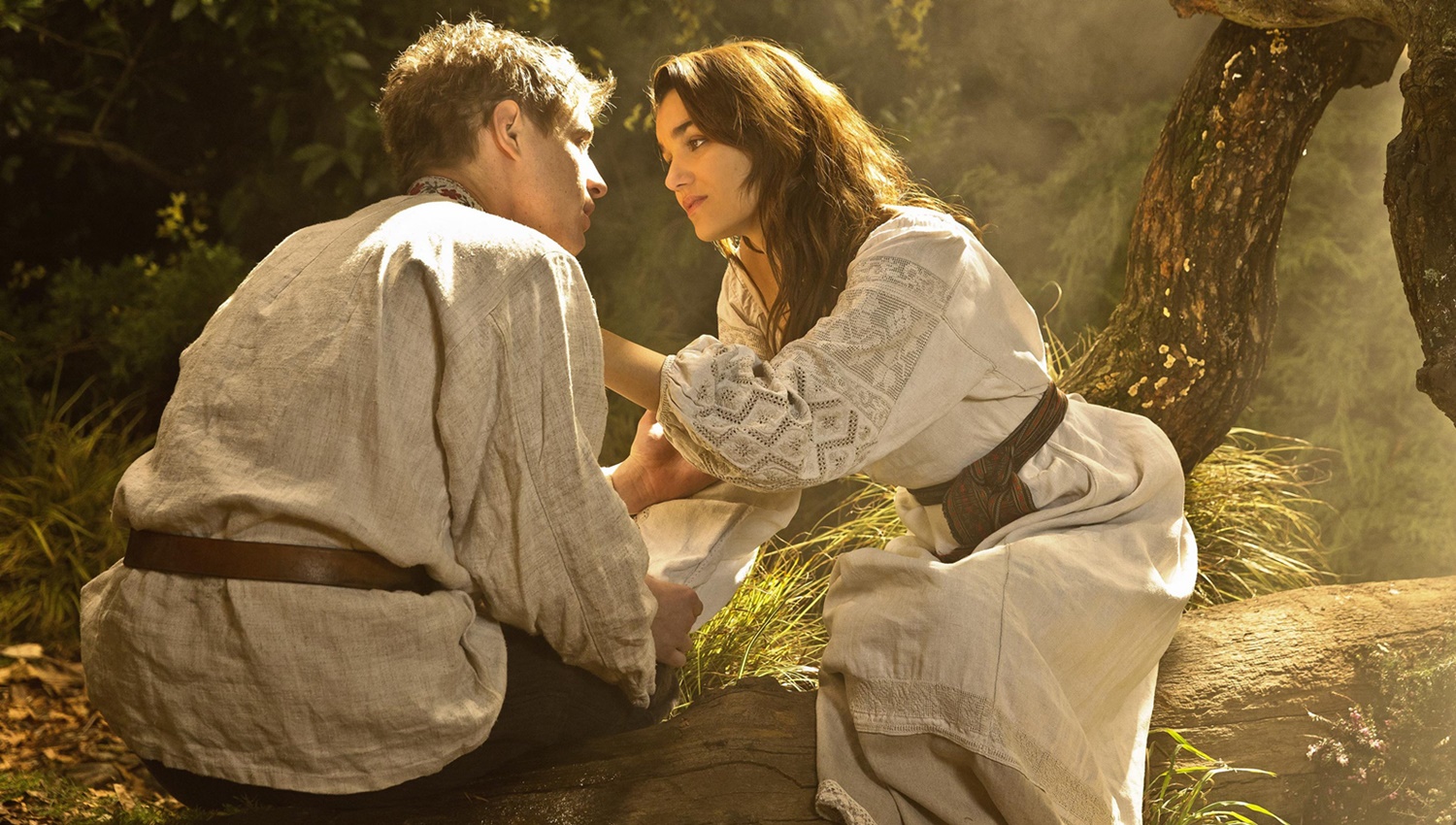
Bitter Harvest
Dustin Chase
Another film with good intentions; dark history that deserves to be on the big screen, weakened by a terrible script and amateur direction. C-rate television director George Mendeluk and screenwriter Richard Bachynsky Hoover use the “Titanic Movie” model to convey a love story set inside the horrific events of Ukraine’s man-made famine that killed around seven million innocent people. Mendeluk’s approach settles this wanna-be epic genocide drama somewhere between a Hallmark film, with its performances, and an A&E made for television movie, with its historical relevance. The cinematography and even the original score elevate Bitter Harvest at times when the editing and narrative is so bad you want to walk away.
Yuri (Irons) comes from a small village in Ukraine where family and kindness are valued above all else. In 1933 the Soviets implement a stranglehold on the people of Ukraine, starting with the depletion of their harvest grain. When the farmers of local towns rise up in resistance, the Soviet’s took away everything else, while hundreds of thousands died of starvation. Yuri left his wife and family to attend university in Kiev, but soon the Soviets prohibited anything that didn’t pay homage to Russia. Yuri sets out on a violent journey home to see his wife Natalka (Barks), who has also joined a resistance group back in their town.
Uninspired visually and thematically as the attempts at action sequences just look silly and the emotional element is ruined by poor performance.
Early in the film, a scene of proposal between Yuri and Natalka takes place in the forest. It’s lit like something out of Sleeping Beauty, with obvious artificial light (which we see again as moonbeams during a prison sequence) that casts the entire film in a sense of heightened reality. Scenes of violence involving supporting characters are quickly followed by Hitchcockian close-ups of women screaming into the camera. Mendeluk directs this movie like something presented to the audiences of 1973. An ambitious historical adaptation that examines a largely untold story in the East of Ukrainian genocide, which explains why it’s presented in English.
Max Irons (son of Jeremy) and Barks (Les Miserable) try to break out of the stereotypes they are bound to by the page, but their good looks lead them nowhere in this mismanaged story. Like Titanic or Pearl Harbor that used the same model, we walk away remembering more about their love affair than what we bought the ticket for in the first place. Bitter Harvest is uninspired visually and thematically as the attempts at action sequences just look silly and the emotional element is ruined by poor performance.
Final Thought
An unskilled director and screenwriter are to blame for this sterile historical epic.
